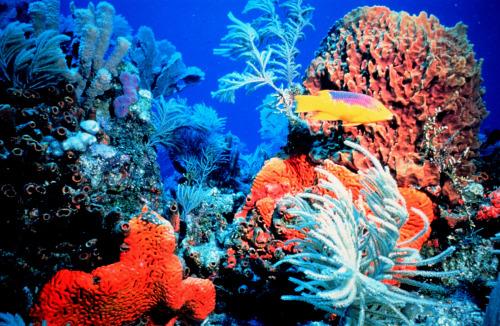#viromes
Why is a mouth like a coral reef?
No, this isn’t a nonsense riddle form Lewis Carroll. But it is the subject of the most recent episode of This Week in Virology (TWiV), where host Vincent Racaniello talks with guests David Pride and Forest Rohwer about their work in the microbiomes of human mouths and the viromes of coral reefs. These two worlds have more in common than you might think when it comes to viruses and bacteria!
“Biology is really all mucus,” (10:09), says cohost Alan Dove, and this is certainly true of coral reefs. According to microbial ecologist Rohwer, coral has thick mucus layers that interact with the ocean and the microbes that come with it. Living inside coral are huge numbers of microorganisms, like dinoflagellates, and when different microorganisms from the water interact with them, a number of things happen. Usually, when phages meet bacteria, they constantly fight each other, but in some coral at certain densities the phages are likely to become prophages that instead protect the bacteria from other phages. The phages, with the mucus, create a kind of protective barrier.
And what about the mouth? “We’re just a coral reef turned inside out,” (12:17) says Dove, as Pride, doctor of Microbiology and Immunology, explains how the saliva microbiome washes over and interacts with the multiple microbiomes located within the mouth. These different microbiomes, called microniches, are all essentially distinct from one another, containing their own makeup of viruses. If some of the viruses are removed, as by using some antibiotics, the makeup is drastically altered, and a space is left open for many more things to come in.
Rohwer notes that the same is true for coral reefs; if phages are removed, bacteria increase and slow the system down. If you add the phages back in, the bacteria decrease again.
“If you mess with any one component of this,” says cohost Rich Condit, “you’re potentially reaching a crisis where the whole thing spins out of control and crashes” (52.48).
Post link

